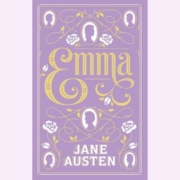History of the Most Famous Christmas Carols
By: Micaela Aboody
It’s that magical time of year again where houses are donning Christmas lights, decorations are everywhere you look and all you hear at the shops are Christmas carols. But, have you ever thought as to how Christmas Carols came to be?
Here are three of the most famous Christmas carols and their history.
Silent Night
A beautiful carol about a new baby born on a calm silent night. The lyrics were originally written in German as “Stille Nacht” by a young priest named Joseph Mohr in 1816 after the Napoleonic wars.
In 1817, he transferred to a parish in St Nicholas and asked his friend, Franz Xaver Gruber, to write music for the six-verse carol.
On Christmas eve of 1818, Stille Nacht Heilige Nacht (Silent Night Holy Night) was first performed by the two friends in front of Mohr’s congregation.
The song was so liked by his congregation some took copies of the music back to their hometowns where it was eventually picked up by two families, the Strassers and the Rainers, who were travelling folk singers. By adding this carol to their shows, it quickly became popular throughout Europe and America.
The composition evolved and was translated into over 300 languages. However, Silent Night’s most important part of history was the 1914 Christmas Truce where English and German soldiers laid their weapons down on Christmas Eve and sang the now famous carol.
Silent Night’s most important part of history was the 1914 Christmas Truce where English and German soldiers laid their weapons down on Christmas Eve and sang the now famous carol.
Over the years the peaceful melody has united people across faiths and cultures on the eve of Christmas.
O Holy Night
In 1847, Placide Cappeau, a French poet was asked by the local priest to write a carol to celebrate the renovation of their new organ.
Not being a Christian himself, Cappeau read about the birth of Christ and tried to imagine what it would have been like to be there to witness the miracle of the birth of Christ.
Cappeau contacted his friend Adolphe Charles Adams to compose the music. “Cantique de Noel” (O Holy Night) was first performed three weeks later at a midnight mass and become quite the favourite among congregations.
However, when Church leaders realised Cappeau had renounced the church and joined a socialist movement they stopped the carol being sung in their churches. But the carol was still a favourite in family homes across France.
This carol also became a favourite among war time when American writer John Sullivan Dwight discovered the song in 1855 and published it in his journal. O Holy Night quickly gained popularity throughout America especially with the abolitionists during the Civil War.
Now in the 21st century the carol is still a success with it being recorded by popular artists such as Celine Dion and Mariah Carey. Although, it is more so the words behind the carol as we celebrate when God became one of us, the birth of Jesus Christ.
Joy to the World
While Silent Night and O Holy Night are about the night Jesus Christ was born, Joy to the World is the more joyous and uplifting carol celebrating the amazing return of Christ.
Written in 1719 by English writer and poet Isaac Watts, he based the words on Psalm 98 of the bible. Joy to the World first appeared in his famous collection The Psalms of David, imitated in the language of the New Testament.
The poem was never intended to be a Christmas carol nor did Watts realise he would write one of the most popular Christmas Carols.
More than a century later, in 1836, Presbyterian hymn composer and music teacher Lowell Mason set the hymn to music.
He published it during the Christmas season and is how the song became associated with Christmas time.
Article supplied with thanks to Hope Media.
Feature image: Photo by Aaron Burden on Unsplash


